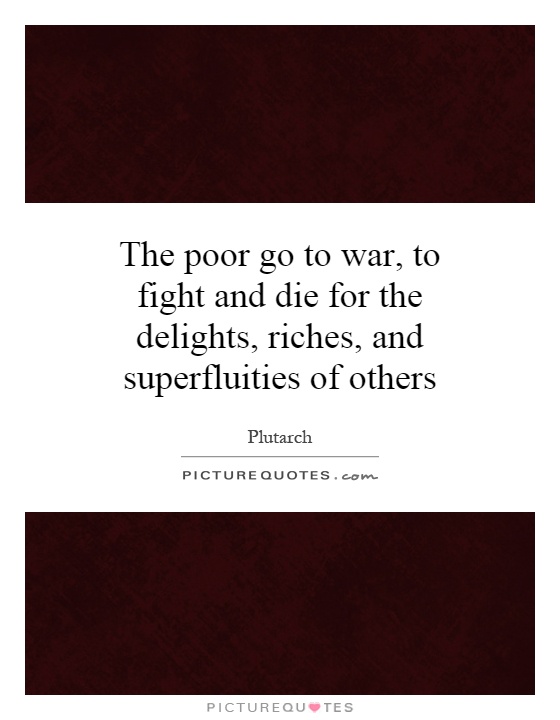The poor go to war, to fight and die for the delights, riches, and superfluities of others

The poor go to war, to fight and die for the delights, riches, and superfluities of others
In the context of Plutarch, a renowned ancient Greek historian and biographer, the statement "The poor go to war, to fight and die for the delights, riches, and superfluities of others" holds significant relevance. Plutarch's works often delved into the lives of notable figures in history, shedding light on the complexities of human nature and society. This particular statement reflects a harsh reality that has persisted throughout history – the exploitation of the poor for the benefit of the wealthy and powerful.Plutarch's writings often highlighted the injustices and inequalities that existed in ancient societies, particularly in the context of war. The poor, who often had little choice but to enlist in the military for economic reasons, were sent off to fight and die in wars that were often waged for the interests of the ruling elite. The wealthy and powerful, who stood to gain riches and glory from conquest, were able to avoid the dangers of battle, leaving the poor to bear the brunt of the violence and suffering.
This exploitation of the poor for the benefit of the wealthy is a recurring theme in history, and one that continues to resonate in modern times. The disparity in power and resources between the rich and the poor has often led to the poor being used as pawns in conflicts that serve the interests of the privileged few. Whether it be through conscription, economic coercion, or other means, the poor are often the ones who are called upon to make sacrifices in the name of war.
Plutarch's writings serve as a reminder of the enduring nature of this injustice, and the need for society to address the root causes of inequality and exploitation. By recognizing the inherent value and dignity of all individuals, regardless of their social status, we can work towards creating a more just and equitable world where the poor are not forced to bear the burdens of war for the benefit of others.












 Friendship Quotes
Friendship Quotes Love Quotes
Love Quotes Life Quotes
Life Quotes Funny Quotes
Funny Quotes Motivational Quotes
Motivational Quotes Inspirational Quotes
Inspirational Quotes